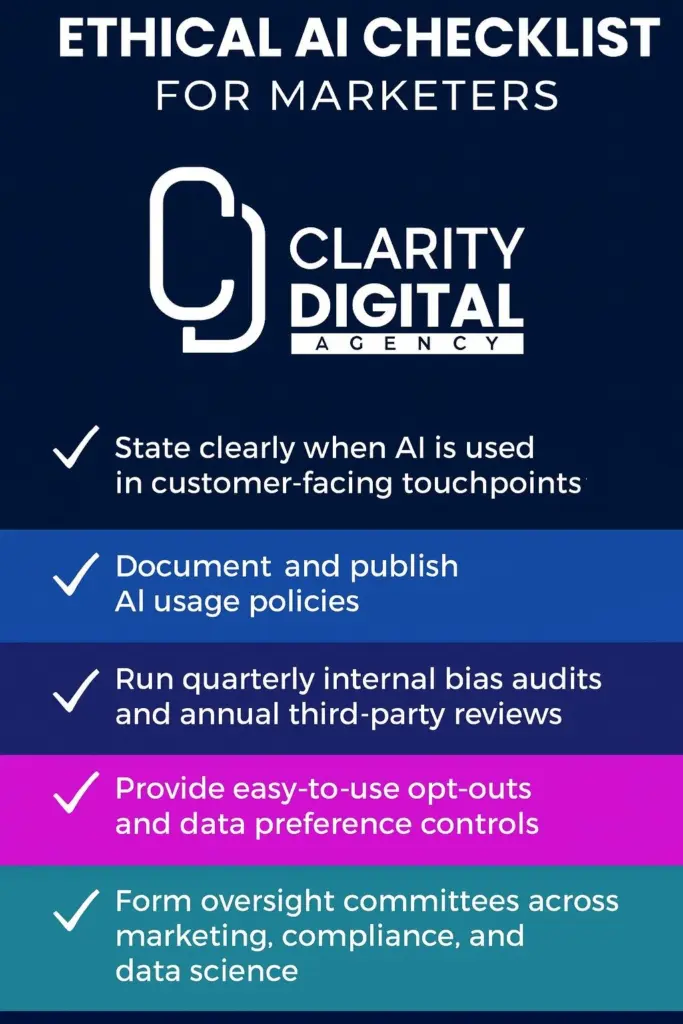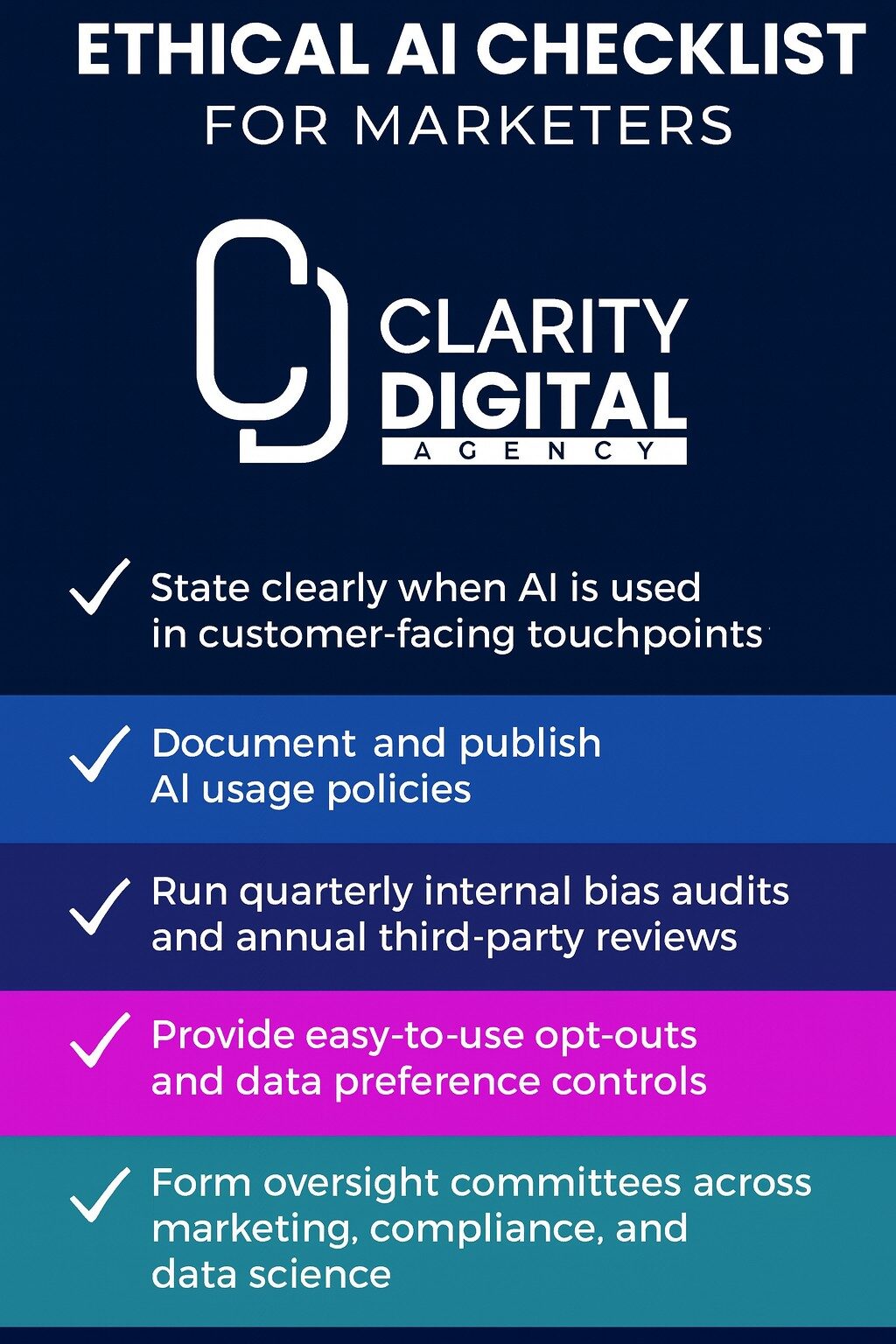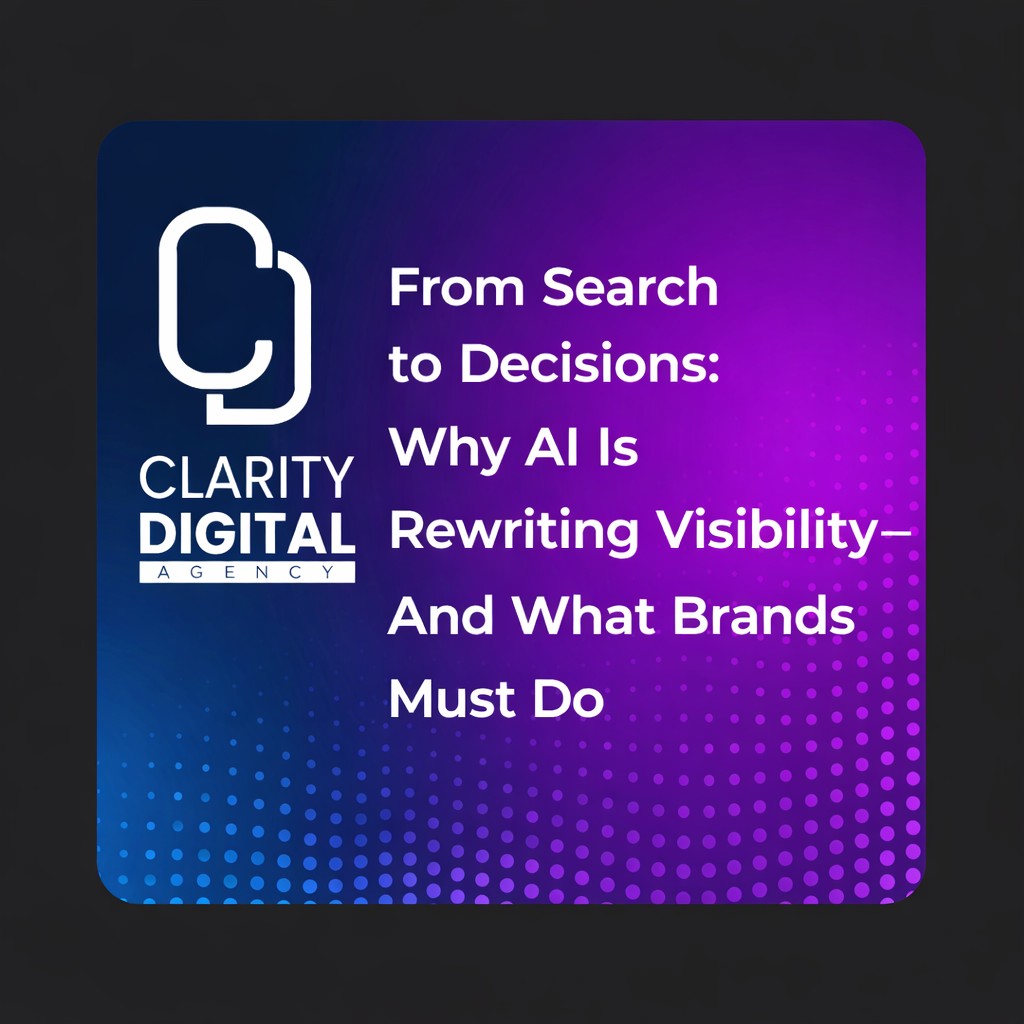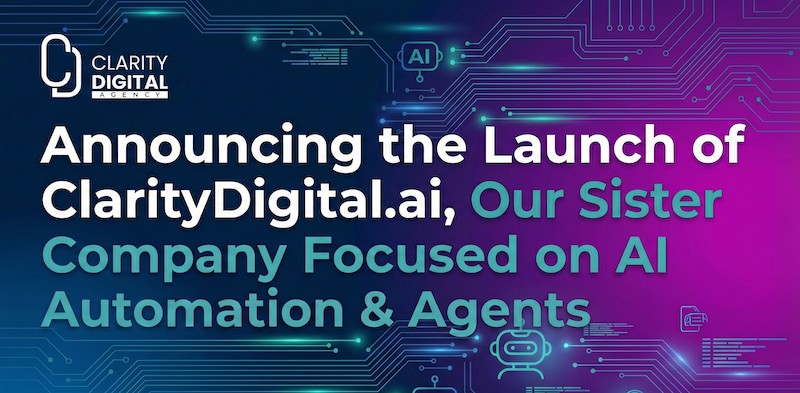Artificial intelligence has become central to digital marketing. From predictive analytics to personalized recommendations, AI shapes how brands connect with audiences. Yet, as adoption accelerates, the conversation has shifted from hype to accountability.
In 2025, the marketing teams that succeed will not just use AI tools effectively, they will deploy them ethically. Ethics is not a side issue. It directly impacts brand trust, regulatory compliance, and ultimately ROI. Consumers are growing more aware of how their data is used, and regulators are tightening requirements around AI transparency. Brands that fall short risk reputational damage, financial penalties, or lost visibility in a marketplace where trust determines conversions.
Ethical AI in digital marketing is about applying principles that protect consumers while enabling innovation. The goal is to balance personalization and performance with fairness, transparency, and accountability.
Core Ethical Principles of Using AI in Marketing
Transparency
Marketers should disclose when and how AI influences decisions or interactions. Consumers should know if a chatbot is AI-driven or if product recommendations are generated by algorithms. Clear disclosure reduces the perception of manipulation and reinforces trust.
Fairness and Inclusivity
AI models often inherit bias from training data. Left unchecked, this can reinforce stereotypes or exclude entire segments of an audience. Ethical marketing requires bias audits, testing across diverse demographics, and safeguards against discriminatory targeting.
Privacy
Data remains the fuel of AI. Ethical practices mean only collecting what is necessary, gaining clear consent, and ensuring compliance with regulations like GDPR and CCPA. Data minimization is no longer optional. In marketing, respecting privacy is a competitive advantage.
Accountability
AI cannot be treated as a black box. Teams must take responsibility for the outcomes of AI-driven campaigns. This includes monitoring performance, owning errors, and putting mechanisms in place to correct harmful outputs. Accountability keeps AI from becoming a scapegoat.
The AI Bias Problem
Bias in AI marketing campaigns is not theoretical. It has real-world impact on visibility, audience engagement, and ROI.
For example, if an ad algorithm disproportionately prioritizes certain demographics over others, campaigns risk missing valuable markets. A 2023 study on programmatic ad systems revealed measurable disparities in ad delivery, with women seeing fewer high-paying job ads than men. In a marketing context, this means unfair exposure that erodes brand inclusivity and long-term equity.
Bias can emerge from several sources:
- Historical data: If past marketing campaigns skewed toward certain demographics, AI will replicate that skew.
- Incomplete datasets: Limited or non-representative training data produces biased outputs.
- Unmonitored feedback loops: Algorithms that optimize for engagement may reinforce narrow stereotypes or amplify harmful content.
Left unaddressed, bias does not just create ethical concerns. It also reduces campaign effectiveness by shrinking audience reach and excluding profitable customer segments.
Case Studies of Using AI in Various Companies
The New York Times: Privacy-First Personalization
The New York Times has been experimenting with AI-driven personalization while maintaining a strict privacy-first framework. Instead of selling user data to third parties, it leverages first-party data under clear consent agreements. The focus is on building trust while providing tailored recommendations for articles, newsletters, and advertising. This case illustrates how transparency and privacy can coexist with effective AI personalization.
Olay: Transparent, Ethical AI Campaigns
Olay, part of Procter & Gamble, ran campaigns emphasizing transparent AI usage in skincare recommendations. By disclosing how AI analyzed skin concerns and offering clear opt-outs, Olay turned potential skepticism into brand loyalty. Customers appreciated knowing how the technology worked, and the company saw improved engagement because transparency built credibility.
These examples prove that ethical AI is not an obstacle to marketing innovation. Done correctly, it strengthens brand trust while maintaining performance.
Best Practices of Ethical AI Usage in Marketing
Building ethical AI frameworks into digital marketing requires deliberate effort. The following steps offer practical ways to operationalize these principles.
1. Publish AI and Algorithm Policies
Public-facing AI usage policies communicate commitment to transparency. Whether on a brand website or within campaign disclosures, clear statements about how AI is used to process customer data and drive decisions build confidence.
2. Conduct Regular Bias Audits
Bias audits should be routine. This includes internal testing as well as independent, third-party reviews of algorithms and campaign outcomes. The goal is to identify hidden inequities and ensure marketing efforts serve all audiences fairly.
3. Empower Users with Controls
Give customers agency over their data. Opt-out options, preference management dashboards, and transparent consent mechanisms should be standard in AI-driven marketing systems. The ability to control data fosters a stronger relationship between consumer and brand.
4. Build Cross-Functional, Diverse Oversight
Ethical AI is not just a technical issue. Marketing, legal, data science, and compliance teams must collaborate. Including diverse voices in the oversight process reduces blind spots and helps anticipate unintended consequences before they reach the public.
Ethical AI Checklist for Marketers
- State clearly when AI is used in customer-facing touchpoints
- Document and publish AI usage policies
- Run quarterly internal bias audits and annual third-party reviews
- Provide easy-to-use opt-outs and data preference controls
- Form oversight committees across marketing, compliance, and data science
- Treat AI outputs as accountable marketing decisions, not automated absolutes

Ethical AI in digital marketing is not just about compliance. It is about building a sustainable competitive advantage. Brands that commit to transparency, fairness, privacy, and accountability will gain trust at a time when trust is a scarce commodity.
Marketers face a choice. They can deploy AI as a short-term performance tool with risks of bias and mistrust, or they can integrate ethics into strategy and win long-term loyalty. The future belongs to brands that lead with responsibility.





